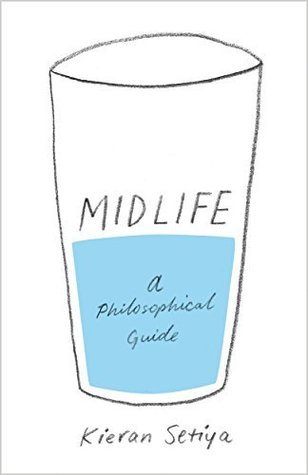More on this book
Community
Kindle Notes & Highlights
You could ask them at twenty or at seventy, though I think they are especially salient when you reach my age. They are questions of loss and regret, success and failure, the lives you wanted and the life you have.
"questions of loss and regret, success and failure, the lives you wanted and the life you have" the summary of what many consider the midlife crisis...when answering these questions leads you to discontent, fear, or anxiety...and a sweeping life change then happens (or you do something stupid in your panic).
Ultimately, they are questions about the temporal structure of human life and the activities that occupy it. This is a book not just for the middle-aged but for anyone coping with the irreversibility of time.
On this new interpretation, the midlife crisis is a predictable dip in life-satisfaction as one reaches middle age, not the tumultuous angst of the original myth.
Schwandt proposed a mathematical model in which experienced life-satisfaction is a function of how well life is going at the time, combined with optimism for the future and disappointment about the present. “As a whole,” he writes, “these findings tell a story in which the age U-shape in job (and overall life) satisfaction is driven by unmet aspirations that are painfully felt in midlife, but beneficially abandoned and felt with less regret during old age.”30 The key to happiness, then, is managing one’s expectations. (This seems like the right time to warn you that you are reading a very
...more
And so the midlife crisis reaches fifty, its health revived but its prospects unclear, just as I turn forty, a tenured professor with a wife and child, two books, and twenty-odd articles in print. I love the profession of philosophy but not with the fire I had ten years ago. The novelty of accomplishment is gone: first publication, first lecture, first day of class. I will finish the paper I am writing; it will eventually be published; and I will write another. I will teach these students; they will graduate and move on; I will teach more. The future is a tunnel of glass: the rest of life goes
...more
"Novelty" will always wear off. That's okay. It's to be expected. Don't disillusion yourself with thinking that something else will bring lasting novelty or joy.
Call it the first rule for preventing a midlife crisis: you have to care about something other than yourself. If nothing matters to you but your own well-being, if you are utterly self-obsessed, not much will make you happy.
A key focus of this book. Seeking happiness for yourself intentionally is usually a paradoxical way to never achieve it. Instead, focusing on the happiness of others brings indirect happiness.
the crisis may emerge as demands on your time recede—perhaps the kids are growing up—and you realize the void, your days no longer filled by what must be done, though there is not much else to do.
We need a term for what is not-just-ameliorative. Since it makes life positively good, not merely better than it could be, and so explains why life is worth living at all, I call such value “existential.” Hence the second rule: in your job, your relationships, your spare time, you must make room for activities with existential value.
There is consolation in the fact that missing out is an inexorable side effect of the richness of human life. It reflects something wonderful: that there is so much to love and that it is so various that one history could not encompass it all.
Embrace your losses as fair payment for the surplus of being alive.
As someone who struggles with FOMO, I need to focus on the surpluses that I do enjoy, knowing that it would be impossible to taste it all and learning to gracefully dismiss the other great options available is a practice in being in the present moment.
The obsessive pursuit of happiness interferes with its own achievement: “Those only are happy,” Mill wrote, “who have their minds fixed on some object other than their own happiness; on the happiness of others, on the improvement of mankind, even on some art or pursuit, followed not as a means, but as itself an ideal end. Aiming thus at something else, they find happiness by the way.”
Missing out is a consequence of the plurality of values: only a drastic impoverishment in the world, or your response to it, could shield you from dismay.
there is the attitude of temporal neutrality: giving equal weight to past and future gains. If you adopt this view, the deprivations of being dead are no worse than those of being as yet unconceived.
It is enough to adjust your attitude, what you love: to value not just projects but the process of raising kids, maintaining friendships, doing your job. From the outside, things might look the same; but they are profoundly different. If you value the process, you have what you want right now; and your engagement does not drain its worth.


